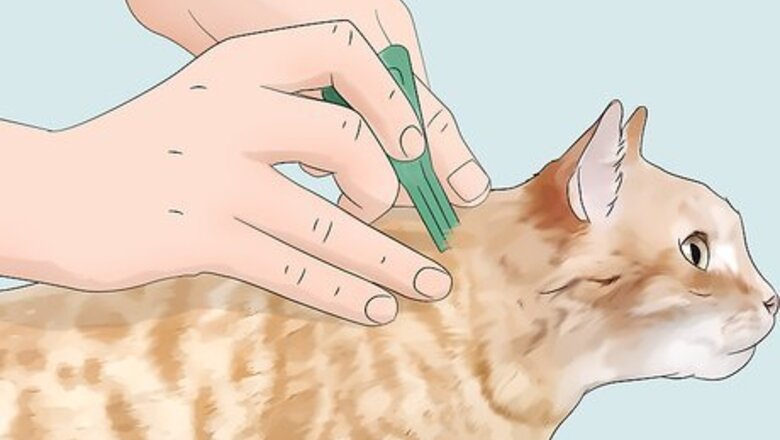
views
Removing Fleas
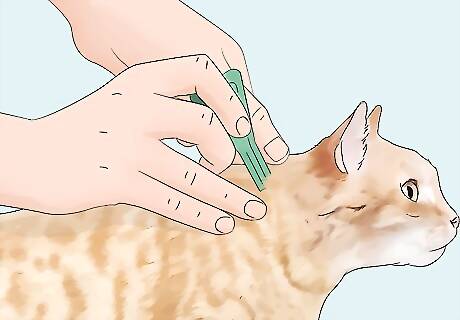
Use flea medication on the mother only. Topical flea medications are poisons that kill fleas when absorbed through your pet's skin. Usually, you would apply a topical medication between a cat's shoulder blades or on the back of the neck. Within a certain time frame, the medication would begin to kill fleas. These medications are usually safe to use on nursing mothers and should not affect your kittens. However, they can be very dangerous to young cats. Only use topical medications to treat fleas on the mother. Make sure to talk to your vet about a safe medication for a nursing mother. While many medications, such as Frontline Plus, are safe to use on nursing mothers, other brands may carry risks. It may be necessary to separate the mother and kittens for a set time after administering the medication. Talk to your vet beforehand.
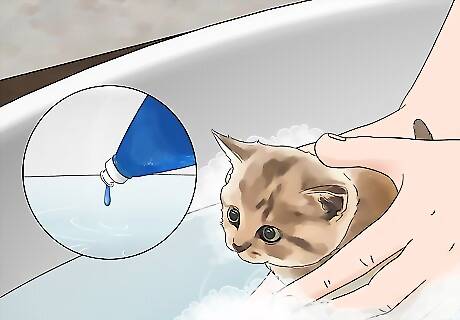
Bathe newborns in dish soap to remove fleas. Harsh chemicals are not safe to use on young kittens, especially newborns. Instead, you can gently bathe newborns using a dish soap. Choose a mild dish soap that does not have antibacterial properties. Fill a sink with warm water and soap. Take your kitten and immerse it to its neck in the water. Use a cloth to gently wet the kitten's face, but make sure to stay away from the eyes. Remove the kitten from the water and massage the soap into its skin. Then, submerge the kitten up to its neck again to rinse it. Make sure to dry your kitten with a warm towel when you're done. You should also keep the kitten in a warm environment until it's completely warm.
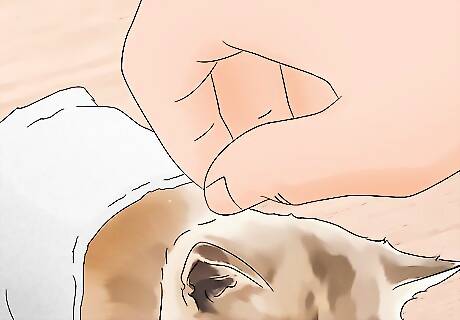
Remove fleas manually. After a bath, you should strive to remove fleas manually when you see them. Fleas may run to the kitten's head or neck during the bathing process, so remove these fleas with tweezers or your fingers while drying your kitten. Drop the fleas into a cup of hot water to kill them after removing them from your kitten.
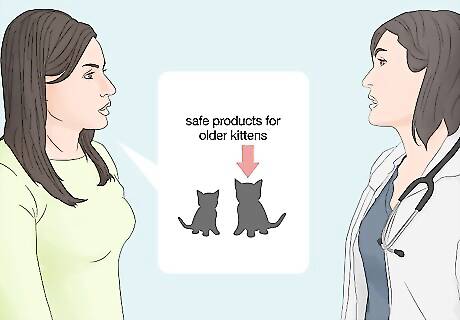
Ask your vet about safe products for older kittens. Kittens older than four weeks may be able to take oral medications to treat fleas. This can be helpful as such medications can kill fleas in several stages of their lifespan. However, you should never administer medication to a kitten without consulting your vet first. Kittens are more fragile than adult cats and even older kittens may react poorly to medication. Oral medications are usually given once a day to kill fleas and start to work fairly quickly. Some kittens older than six weeks may be able to tolerate topical medications once a month. However, such medications can be very dangerous if your kitten is not healthy enough to tolerate them so talk to your vet before administering such medications.
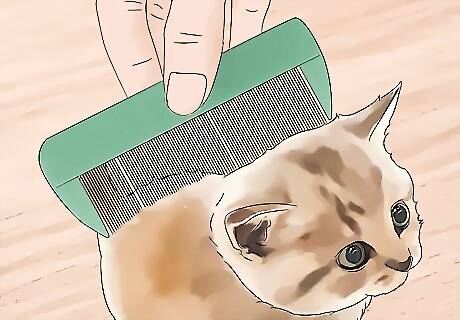
Comb kittens frequently with a flea comb. A flea comb can be an effective tool to treat fleas in young kittens, especially if your kittens are still too young for medication. Comb the the kittens each day with a flea comb. Remove fleas you see with your fingers or tweezers. Set these fleas aside in a bowl of hot water to kill them. Talk to a vet first to make sure you choose a healthy, safe flea comb for your kittens.
Treating the Environment
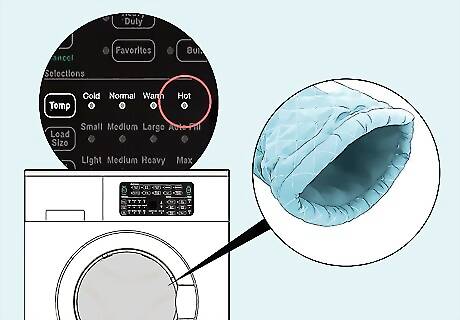
Wash all bedding in hot water. Fleas do not just exist on your cats and kittens. They can live in the surrounding environment for a long time. In addition to treating your cats with flea combs, medications, and baths, you should wash all the bedding they use in warm water. Wash the bedding regularly as long as an infestation lasts. You should also wash any cloth toys in warm, soapy water.
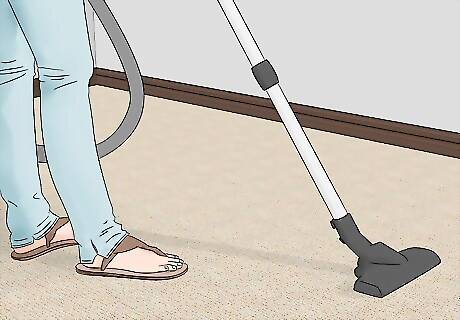
Vacuum frequently. Fleas can live in your furniture and carpet. During an infestation, vacuum frequently to remove flea eggs and larvae from your home. Vacuum the carpet in addition to any upholstered furniture.
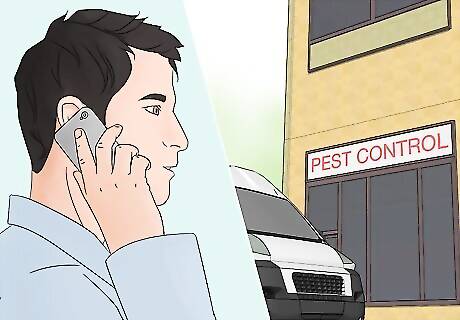
Consider professional exterminators for extreme cases. If you're still seeing fleas after taking all the proper precautions, consider hiring professional help. Fleas are not just a nuisance. They can carry diseases, such as worms, that can be more dangerous to younger cats. Make sure you know what to do with your pets during the extermination process. You may have to keep your pets outside of your home before and after your home is treated for pests.
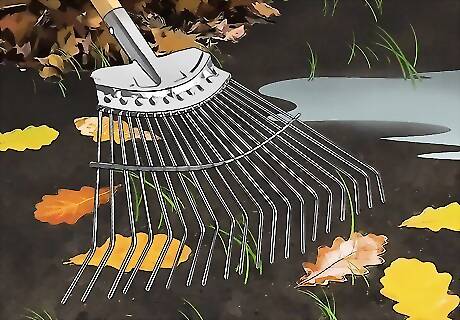
Keep debris out of your home. You do not want to risk letting fleas back in after an infestation as passed. Fleas can get in from outside if you track in organic materials, such as leaves and dirt. Keeping your home free of such materials can help keep your home free of fleas.
Avoiding Common Mistakes
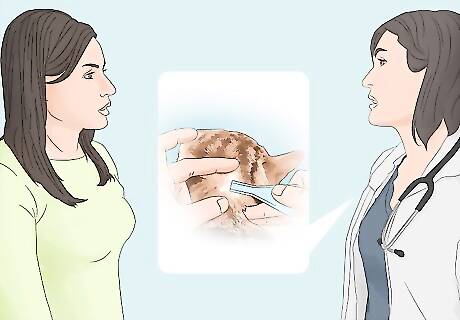
Talk to a vet first whenever possible. Young kittens and nursing mothers cannot always tolerate medication as well as other cats. It's always best to talk over treatment options with your vet beforehand, especially if you're considering using chemical treatments. The first thing you should do when you notice a flea infestation is take your cat and kittens to the vets for assessment.
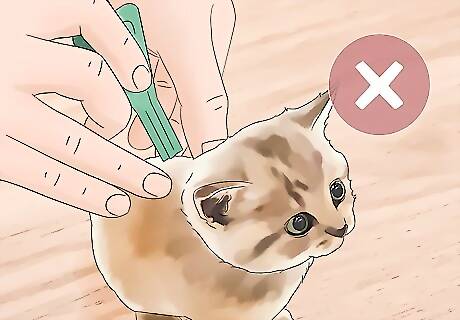
Refrain from using topical medications on kittens. In general, topical medications are not safe for kittens, especially kittens under six weeks of age. Young kittens respond better to treatments like baths, combing, and manual removal. Only use topical medications on your kittens if your vet suggests it. Make sure to follow your vet's instructions closely when using such medications.
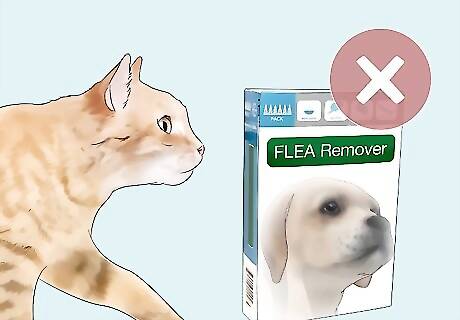
Do not use products intended for dogs on cats. If you're using a topical medication, make sure it is specifically designed for cats. Similar products designed for dogs do not use the same chemicals. They can be very dangerous when administered to cats.

















Comments
0 comment